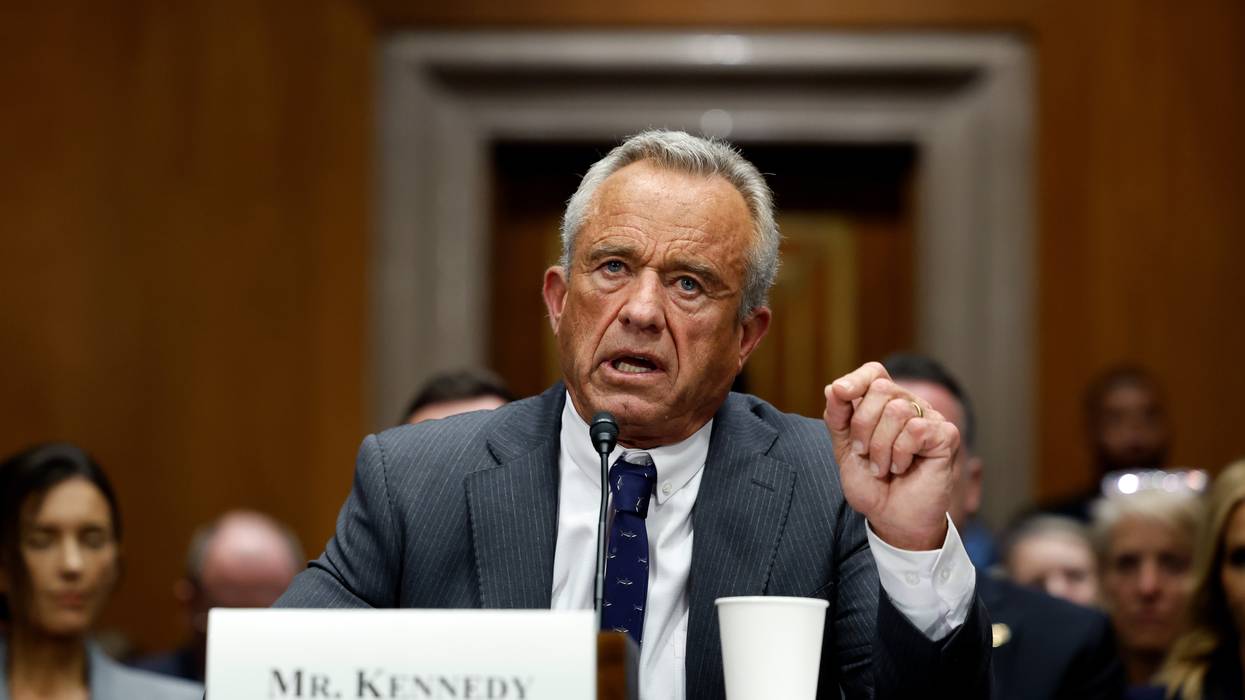‘Execution Plain and Simple’: Community Fury in Minneapolis After Deadly Shooting by Federal Agent
Rep. Ilhan Omar demanded that ICE agents "stop terrorizing our communities."
This a developing story... Please check back for possible updates... WARNING: This post includes graphic footage of the shooting which some people may find disturbing...
Residents of Minneapolis reacted with fury on Wednesday after a woman was shot and killed by a federal immigration agent.
Emily Heller, a Minneapolis resident who witnessed the shooting, told Minnesota Public Radio that she saw a federal agent confronting a woman who was sitting in her car and telling her to leave the area during an immigration enforcement operation in the neighborhood.
"She was trying to turn around, and the Immigration and Customs Enforcement (ICE) agent was in front of her car, and he pulled out a gun and put it right in," Heller told MPR. "And he reached across the hood of the car and shot her in the face like three, four times."
The identity of the woman shot by the agent has not yet been released, but US Sen. Tina Smith (D-Minn.) wrote in a social media post that the woman was a US citizen.
The senator also said that "ICE should leave now for everyone's safety."
Minneapolis Mayor Jacob Frey is also demanding that ICE leave the city, according to a post from the city's official X account.
US Rep. Ilhan Omar (D-Minn.) echoed Smith and Frey's calls for ICE to get out of Minneapolis.
"ICE must stop terrorizing our communities and leave our city," she wrote in a social media post.
Others condemned the shooting as a clear case of criminal excessive force that should be treated as murder.
"This is an execution plain and simple," said journalist Krystal Ball in reaction to footage of the killing. "If your Trump love or immigrant hatred has you justifying murder, please seek help."
Minnesota Gov. Tim Walz released a statement saying that his public safety team "is working to gather information on an ICE related shooting this morning," while vowing to "share information as we learn more."
"In the meantime, I ask folks to remain calm," Walz added.
One witness, who was in the neighborhood to act as a legal observer, described horrifying scenes to local reporters:
This is what an eyewitness said pic.twitter.com/vQrLkMFpdS
— Sarah Burris (@SarahBurris) January 7, 2026
The Department of Homeland Security, which oversees ICE, put out a statement acknowledging that an ICE officer had fatally shot the woman and accused her of engaging in "domestic terrorism."
"ICE officers in Minneapolis were conducting targeted operations when rioters began blocking ICE officers and one of these violent rioters weaponized her vehicle, attempting to run over our law enforcement officers in an attempt to kill them—an act of domestic terrorism," the agency claimed, without providing any evidence. "An ICE officer, fearing for his life, the lives of his fellow law enforcement, and the safety of the public, fired defensive shots."
Video footage from scene as well as testimony from witnesses, however, betrayed the agency's version of events. As one social media user said, posting the following video, "Does this look like what you’re claiming?"
Does this look like what you’re claiming pic.twitter.com/4rV8n4LuSd
— Mogana (@MoganaPhilips) January 7, 2026
A separate video from a different angle (Warning: graphic footage), also shows that the individual in the car was trying to turn the vehicle away from officers, not harm anyone:
Here's the video for those who don't have Bluesky pic.twitter.com/vM3Bsfk8Uc
— Hussain (@huspsa) January 7, 2026
Federal officials in the past have made statements about incidents involving protesters that have been flatly contradicted by officers' own body camera footage.
In November, federal prosecutors dropped assault charges against Marimar Martinez, a woman who was shot multiple times by a US Border Patrol agent in Chicago’s Brighton Park neighborhood, weeks after her attorney claimed to have seen body camera footage that completely undercut officers' claims.



